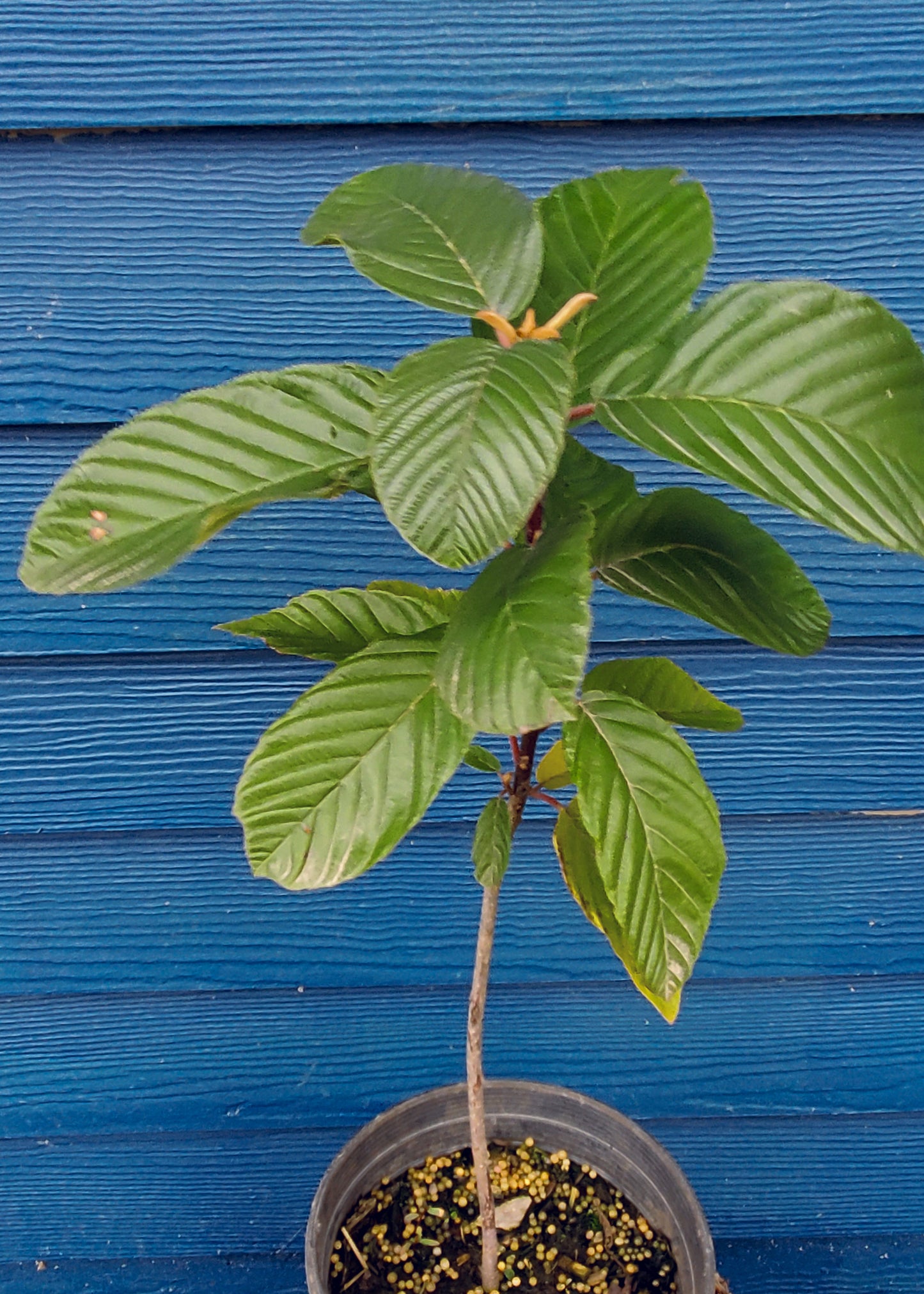Cascara
Cascara
40 in stock
Inventory status will show the amount available at Bella Terra's nursery. Plants ordered that show no number next to the in stock green icon above will be placed on a backorder and my take additional time to procure.
Couldn't load pickup availability
Cascara (Frangula Purshiana) - The Understated Star of the Woodland
Other Common Names Include: Cascara Buckthorn, and Pursh's Buckthorn.
Introducing the Cascara: Meet the Cascara, a tree that's as unassuming as it is useful. Not one to clamor for attention in the garden, the Cascara stands proudly with a quiet grace, offering more than meets the eye.
Seasonal Charm:
- Spring: In spring, the Cascara's modest leaves emerge alongside small, inconspicuous flowers, a subtle nod to the season's awakening.
- Summer: The dark green foliage becomes a backdrop to its developing fruit, which starts green and turns to a deep, shiny black by late summer. It's like watching a slow, natural art show unfold.
- Autumn: As fall arrives, the leaves turn to a muted yellow, not with a bang but with a whisper, quietly celebrating the season's change.
- Winter: During winter, the Cascara's bare branches reveal a simple, elegant structure, a stoic presence in the sleeping garden.
Ideal Growing Conditions: The Cascara isn't fussy. It thrives in a variety of conditions, preferring partial to full sun and well-drained soil. Think of it as the reliable old tractor in the field, dependable in different terrains.
Watering Needs: This tree appreciates consistent moisture but doesn't like to have wet feet. Regular, moderate watering does the trick, especially during dry spells. It's the kind of plant that appreciates a steady routine, like morning coffee on the porch.
Growth and Size: Growing at a moderate rate, Cascara typically reaches 15 to 30 feet in height. It's not the tallest tree in the forest, but it holds its own, much like a seasoned gardener among sprightly seedlings.
Why Plant Cascara? Aside from its quiet beauty, the Cascara is known for its medicinal bark, historically used by Native Americans and settlers alike. It's a living piece of natural history, a connection to the land's past. Ideal for those who appreciate a garden with a story, the Cascara offers both beauty and a link to traditional uses.
The Cascara tree is a testament to the beauty of simplicity and the value of heritage. It's more than just a tree; it's a subtle, enduring presence in your garden, a bridge between the present and the natural world's rich history.
Share




